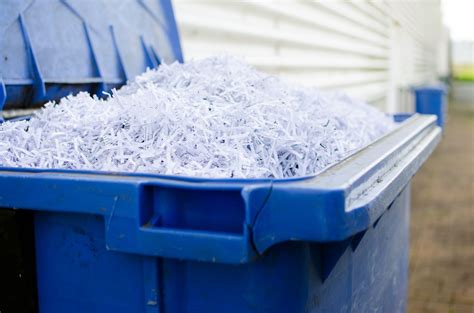Money From Waste Management

Maximizing Profits: Unlocking the Potential of Waste Management

In today's world, where sustainability and environmental consciousness are at the forefront of global discussions, the concept of waste management has evolved from a mere necessity to a profitable industry. With innovative technologies and a shift towards a circular economy, waste is no longer just a burden but a valuable resource waiting to be tapped into. This article delves into the realm of waste management, exploring how businesses and individuals can turn trash into treasure and, more importantly, into tangible profits.
The waste management sector has witnessed a paradigm shift in recent years, transforming from a traditional, often overlooked industry to a thriving, eco-conscious business arena. This evolution is driven by the increasing awareness of the environmental impact of waste, coupled with the recognition of the economic opportunities it presents. By embracing sustainable practices and adopting cutting-edge technologies, businesses can not only reduce their environmental footprint but also unlock a wealth of opportunities to generate revenue from waste.
The Circular Economy Approach: A New Business Paradigm

At the heart of this transformation lies the concept of the circular economy, a model that aims to eliminate waste and continuously utilize resources. In a circular economy, the traditional linear model of 'take, make, dispose' is replaced by a more sustainable approach of 'reduce, reuse, recycle, and recover.' This paradigm shift not only minimizes environmental impact but also creates new revenue streams by maximizing the value derived from resources.
For instance, consider the recycling industry, a key component of the circular economy. Recycling processes can convert waste materials such as glass, paper, and plastics into valuable raw materials, which can then be sold back into the market. This not only reduces the demand for virgin resources but also generates revenue for businesses involved in the recycling process. A prime example is the recycling of e-waste, where old electronics are disassembled and their components, such as precious metals and rare earth elements, are recovered and sold at a premium.
Innovative Technologies: Unlocking Waste's Potential
The integration of innovative technologies has been a game-changer in waste management. Advanced sorting technologies, for example, can efficiently separate different types of waste, making recycling processes more effective and profitable. Furthermore, biogas technologies are being utilized to convert organic waste into renewable energy, offering a dual benefit of waste reduction and energy generation.
Take the case of anaerobic digestion, a process that uses microorganisms to break down organic waste in the absence of oxygen. This technology not only reduces the volume of waste sent to landfills but also produces biomethane, a renewable gas that can be used for heating, electricity generation, or even as a transport fuel. Businesses adopting this technology can not only benefit from reduced waste disposal costs but also generate revenue from the sale of renewable energy certificates.
Waste-to-Energy: Converting Waste into a Power Source
The concept of waste-to-energy (WTE) is another lucrative avenue within the waste management sector. WTE technologies convert non-recyclable waste into usable energy, such as electricity or heat. This process not only reduces the volume of waste but also provides a reliable source of energy, contributing to a more sustainable and secure energy future.
For instance, incineration plants are a common WTE technology, where waste is burned at high temperatures to generate steam, which in turn produces electricity. While incineration has faced some criticism due to concerns over air pollution, modern incineration technologies have significantly reduced emissions, making them a more environmentally friendly option. Additionally, the heat generated during incineration can be utilized for district heating systems, further maximizing the energy recovery potential.
Waste-to-Energy Success Stories
One notable success story is the Incineration Plant in Copenhagen, Denmark. This state-of-the-art facility not only provides electricity for over 60,000 homes but also supplies heat to approximately 150,000 homes, making it a key player in Copenhagen's district heating system. The plant's innovative design, which includes a ski slope on its roof, has turned it into a tourist attraction, demonstrating how waste management can be both profitable and aesthetically pleasing.
In the United States, the Covanta Energy-from-Waste facility in Baltimore, Maryland, is another example of successful WTE implementation. This facility processes over 1,200 tons of municipal solid waste daily, generating enough electricity to power approximately 37,000 homes. Covanta's innovative approach to waste management has not only reduced the city's reliance on landfills but also provided a reliable source of renewable energy.
Composting: Turning Organic Waste into Gold
Composting is another critical aspect of waste management that presents significant economic opportunities. By converting organic waste, such as food scraps and yard trimmings, into compost, businesses and individuals can not only reduce the amount of waste sent to landfills but also produce a valuable soil amendment that can be sold or used to improve soil health.
The commercial composting industry has seen tremendous growth in recent years, with an increasing number of businesses and municipalities recognizing the value of compost. This organic matter is in high demand from the agricultural and landscaping sectors, as it enriches soil, improves water retention, and reduces the need for chemical fertilizers. Composting thus offers a double benefit: waste reduction and revenue generation from the sale of compost.
Community Composting Initiatives
Community composting initiatives are a great example of how composting can be a profitable venture at a local level. These initiatives often involve the collection of organic waste from households and businesses, which is then processed into compost and sold back to the community. Not only does this reduce the strain on local landfills, but it also creates a sustainable, circular system within the community.
For instance, the Green City Compost program in Portland, Oregon, has been a successful community composting initiative. By collecting food scraps and yard waste from residents, the program produces high-quality compost that is sold back to the community, fostering a sense of environmental responsibility and economic sustainability.
Conclusion: The Profitable Potential of Waste Management

The world of waste management is no longer solely about disposal and recycling; it is a realm of innovative technologies, circular economies, and lucrative business opportunities. By embracing sustainable practices and adopting cutting-edge technologies, businesses and individuals can turn waste into a valuable resource, generating profits while contributing to a greener, more sustainable future.
As the saying goes, "one man's trash is another man's treasure." In the context of waste management, this translates to a wealth of opportunities waiting to be explored and capitalized upon. The time is now to unlock the full potential of waste and embrace a future where profits and sustainability go hand in hand.
How can businesses benefit from waste management initiatives?
+Businesses can benefit from waste management initiatives through reduced waste disposal costs, increased revenue from the sale of recycled materials or energy, and enhanced corporate social responsibility (CSR) standing. Additionally, embracing sustainable waste management practices can lead to improved brand reputation and customer loyalty.
What are some common challenges in waste management, and how can they be overcome?
+Common challenges include lack of public awareness, inadequate infrastructure, and high implementation costs. These can be addressed through education campaigns, government incentives for sustainable practices, and the development of efficient, cost-effective technologies.
How can individuals contribute to profitable waste management practices?
+Individuals can contribute by practicing proper waste segregation at home, participating in community recycling and composting programs, and supporting businesses that prioritize sustainable waste management practices. By doing so, they can help reduce waste, conserve resources, and support a more sustainable economy.



